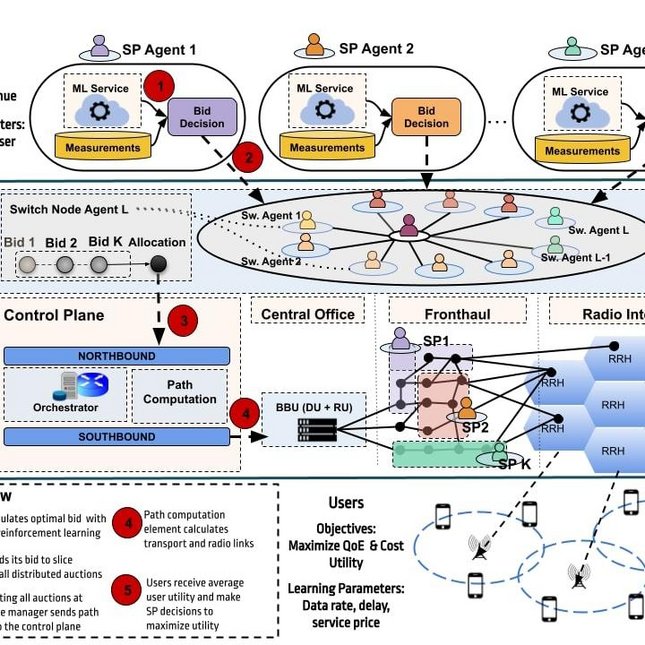
Mobile wireless networks have been commercially available for decades, and 6G is the newest step in the evolution of mobile network management, bringing programmability, SDN-based flow control and on-demand network slices tailored for various business layer applications into the big picture. A new challenge in network management is to design mechanisms that learn the behavior of different stakeholders and enable coordination between these stakeholders to optimally adapt to the system-wide objectives. Game theory provides analytical tools designed to understand the interactions between decision-makers; therefore game theory-based network resource management is studied for rational, autonomous and distributed decision-making among 6G entities.
Multiple stakeholders can become involved in decision-making inside a well-defined architecture, as game-theoretic models enable stakeholders to learn about the dynamic environment for their interdependent strategies. User association games, such as leader-follower games between network and users to achieve QoE maximization, coalition games between network elements to reach social-welfare maximizing outcomes, resource auctions for profit maximization, non-cooperative games between competing services, and population games for users are all attractive options to create distributed decision-making mechanisms that take multiple network stakeholder involvement into consideration.